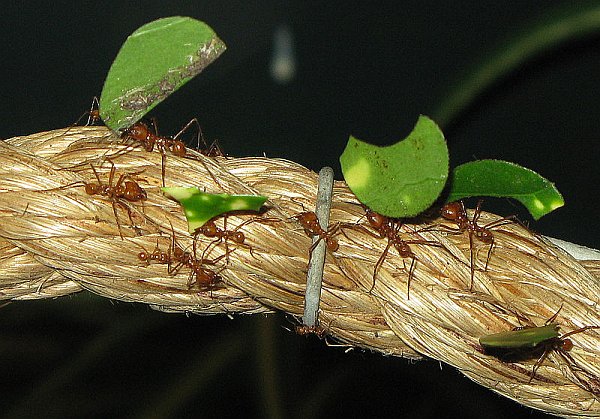An article in the March 5 issue of The New Yorker got me thinking about human society.
Kin and Kind: A fight about the genetics of altruism by Jonah Lehrer describes the history of the inclusive fitness theory and the current dispute among evolutionary biologists on the origin of altruism.
It all started with E.O. Wilson, a biologist, author and expert on ants. In 1975 he promoted the theory of kin selection to explain why altruistic individuals sacrifice themselves for their kin. (Ants do this a lot!) Natural selection says this shouldn’t work because their genes would die out but kin selection says they help their kin because it preserves the genes they share. Survival through kinship was named inclusive fitness.
Over the years E.O.Wilson started to see holes in inclusive fitness. In 2010 he and two mathematicians, Mark Nowak and Corina Tarnita, published an article in Nature that refuted it.
Half The New Yorker article is about the resulting fight. The other half is what caught my attention.
E.O.Wilson changed his mind because he learned more about ant behavior. As it turns out, cooperation within a species doesn’t spring up easily. When it happens to start within a group, it makes the group survive so well that they dominate other groups. Further, cooperative species are so successful that they dominate others species. Cooperation can start in any group. It just happens that the groups are composed of kin.
This works because “Selfishness beats altruism within groups. Altruistic groups beat selfish groups,” as E.O. Wilson wrote in 2007.
The first principle has certainly been my experience. Within a group, a selfish person pushes everyone else around. We see it working for these individuals and our society advertises it in slogans that say “It’s all about you” and “Have it all.” It doesn’t take much thinking to realize that you can’t have all of it if you’re sacrificing yourself. So we’re encouraged to be selfish.
But wait. The second principle is true too. Selfish groups lose to altruistic ones. Cooperation makes groups successful over rivals who fight among themselves.
It’s important not to lose sight of this. Humans have been successful as a species because we help each other. Selfishness is a disadvantage to society. Rugged individuals fail in the face of disasters like last week’s tornadoes. We can’t do everything alone, and we cannot expect society to thrive if we insist that everyone pull himself up by his own bootstraps.
I am happy to know that nature showed the way on this.
In my view kindness beats selfishness any day of the week!
(photo of leaf cutter ants, who are models of cooperation, from Wikimedia Commons. Click on the photo to see the original)

This is interesting. Friendliness is good. I agree. However, when I fail in a moment that offers altruism as an option, I try to not be TOO hard on myself as altruistic tendencies and immediate self-preservation are both intrinsic to human nature. Hopefully, they balance each other out.
There’s an ample body of research that confirms this among human groups in the field of “social capital.” A good starting point is the work of Harvard professor Robert Putnam’s, best known through his book: Bowling Alone: The Collapse and Revival of American Community (Simon & Schuster, 2000) with some continuing research posted here: http://www.hks.harvard.edu/saguaro/socialcapitalprimer.htm
I like the book suggestion. Bowling Alone sounds intriguing.
I just read reviews and synopses for Bowling Alone. It brings to mind the American Experience episode recently aired about the Amish community. I thoroughly enjoyed the show. I watched it twice. It touches upon so many issues relating to our blind acceptance of technology as improvement and brings to mind a book I read by Wendell Berry, The Unsettling of America. Now that I look back on the blog entry, E.O. Wilson is a contemporary of Wendell Berry. They had differing ideas to put it mildly.